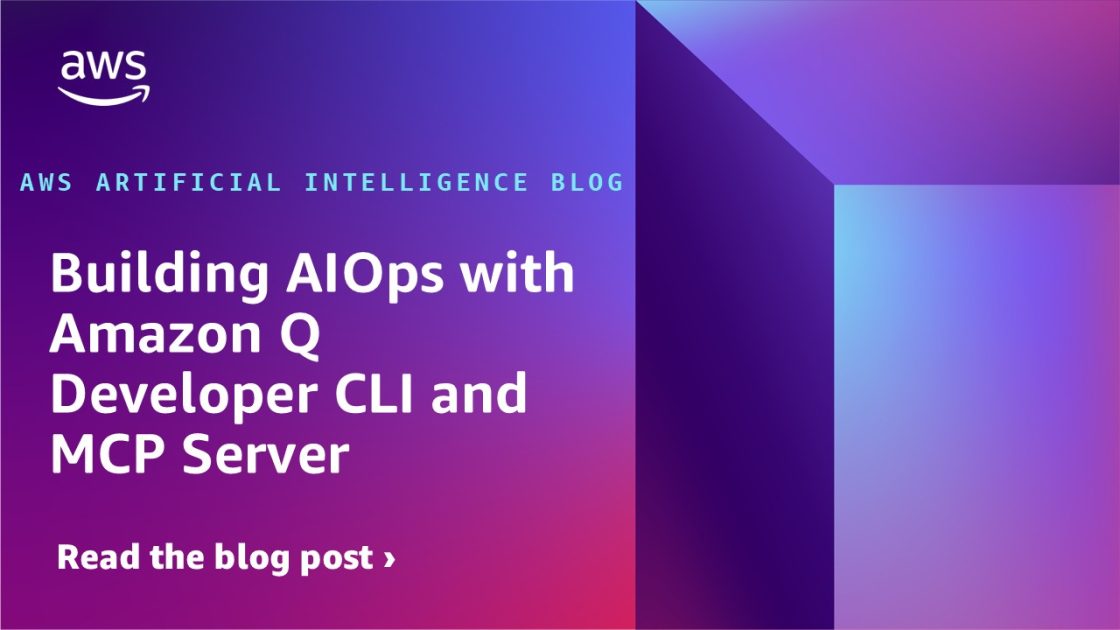Sure! Here’s the translation of the provided text into American English:
—
IT teams are facing increasing challenges as they manage increasingly complex infrastructures and applications. Often, these professionals spend numerous hours identifying operational issues, troubleshooting incidents, and performing repetitive maintenance tasks. This accumulation of operational work diverts valuable technical resources away from innovation and strategic initiatives. In this context, artificial intelligence for IT operations (AIOps) emerges as a transformative solution.
By leveraging artificial intelligence, AIOps can automate operational workflows, detect anomalies, and resolve incidents with minimal human intervention. This allows organizations to optimize their operational efficiency while maintaining security in managing their infrastructures and applications.
Developers can take advantage of tools like Amazon Q Developer CLI and Model Context Protocol (MCP) to build powerful AIOps solutions that reduce manual effort through natural language interactions. Amazon Q Developer assists IT professionals with various tasks ranging from coding, testing, and deployment to troubleshooting and application modernization. Through MCP, Amazon Q can connect with custom tools and services via a standardized interface, enabling more sophisticated operational automations.
The article focuses on how to implement a low-code and no-code AIOps solution that helps organizations monitor, identify, and address operational events while maintaining their security posture. It highlights the technologies employed to automate repetitive tasks, streamline incident response, and enhance operational efficiency.
The MCP serves as a universal connector for artificial intelligence models, facilitating interaction with external systems and real-time data retrieval. This approach provides relevant contextual insights, accessing the necessary information to carry out various tasks.
The setup process for MCP in Amazon Q Developer CLI is carried out through JSON files, where an MCP client is created to enable operational queries in natural language. The platform makes decisions on which MCP servers to use or which tools to invoke based on the user’s query.
To test the solution, an AWS CloudFormation template can be implemented to deploy EC2 instances and S3 buckets for various AIOps testing. At the end, it is crucial to delete the created resources to optimize costs and enhance security.
The article not only details the implementation process of AIOps but also includes specific use cases, such as identifying and remediating high CPU usage in EC2 instances, removing public access to S3 buckets, and closing unwanted open ports, all through natural language queries to Amazon Q Developer CLI.
Thus, the AIOps solution not only helps manage complex environments more efficiently but also minimizes human errors through its conversational interface. It invites professionals to explore more use cases and provide feedback on the tool.
via: MiMub in Spanish











